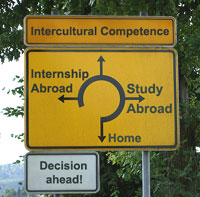 The whole show is devoted to a conversation I had with Tom Verghese of Cultural Synergies which is an international management consultancy in Melbourne, Australia.
The whole show is devoted to a conversation I had with Tom Verghese of Cultural Synergies which is an international management consultancy in Melbourne, Australia.
absolutely invisible:
First of all I asked Tom Verghese the story behind the name of his book which is ‘The Invisible Elephant’. It turns out that an elephant is a great metaphor for culture and it is also linked to the expression about the elephant in the room meaning the big issue which nobody dares to talk about.
absolutely vocational:
Tom referred to several racist incidents which have happened in Australia recently as the catalyst for his next book, ‘The Invisible Elephant in the classroom’ which will give practical ideas for short focused activities to help vocational teachers make their increasingly international classes more inclusive. Something as simple as getting all the students to explain the story behind their names helps everyone in the class to appreciate the cultural richness within it.
absolutely reflective:
Tom has developed a tool called the Cultural Mirror which helps groups of people discover their tendencies in 9 significant cultural factors. Some of these are well known from the basic literature of intercultural communication by Gert Hofstede and Edward Hall such as a tendency to individualism or collectivism or the tendency to monochronic or polychronic attitudes to time. But some of the nine factors were new to me such as the dichotomy between a guilt-based culture and a shame-based culture. Knowing where the individual memebers of your international team stand on these issues should be a great starting point for working out best practices within the team regarding attitudes to deadlines and so on. I am certainly interested in trying out the Cultural Mirror exercise at the beginning of the next project which I coordinate. The cultural mirror approach is described in more detail in the book, ‘The Invisible Elephant’.
The next show will be coming to you on 7 August from Germany.
So long…stay tuned!
The host of this show is: Anne Fox
Editor: Jan Warnecke

